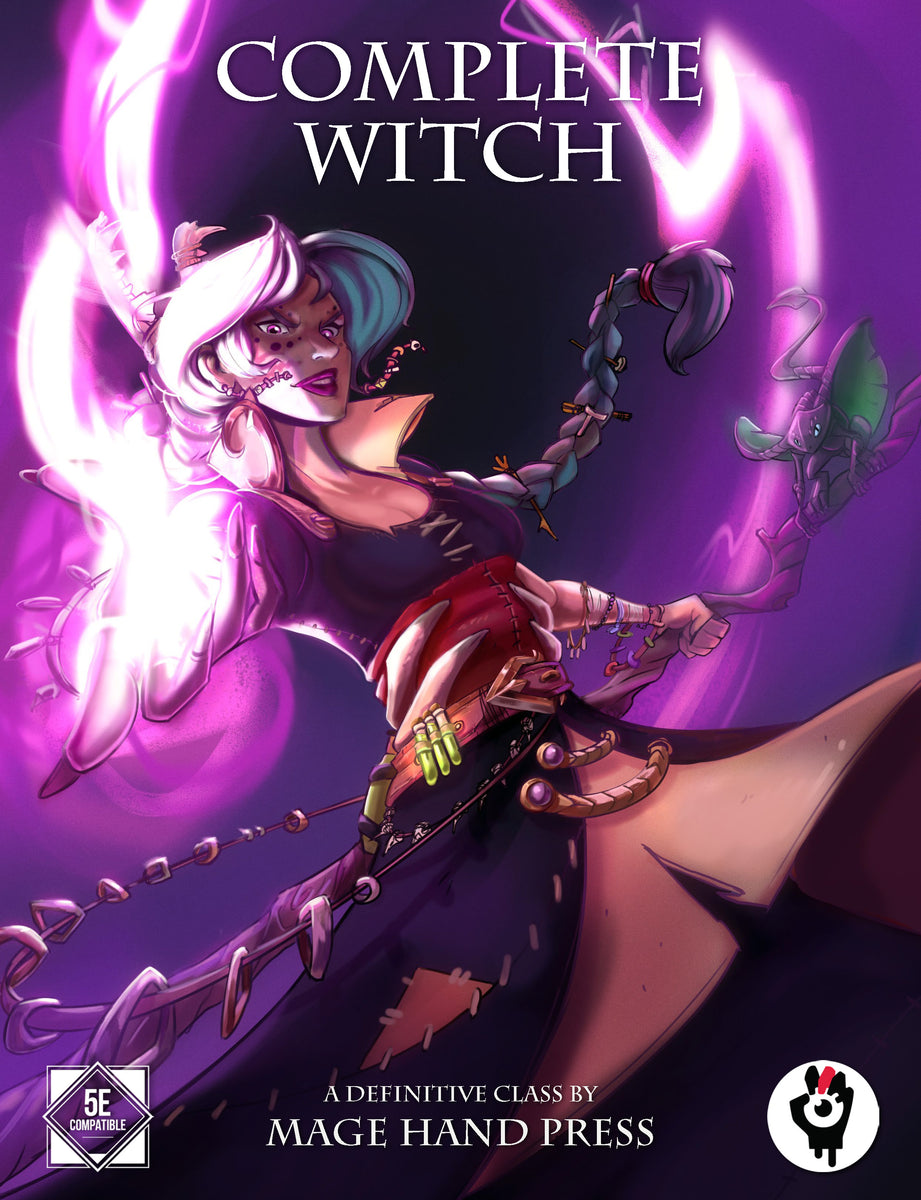steeldragons
Steeliest of the dragons
Is, perhaps, the confusion over an archetype or clarity of vision or implementation for a Witch class (in 5e or anywhere else) simply an issue of its lack of history in the rpg? "Officially," I mean.
Is it difficult for people to come to agreement of how to handle a witch (class or sub-class, sub-class of what, what features are iconic, etc...), as much as diversity of folklore/material to draw from as it is, if not solely due to, that a Witch just doesn't have that ephemeral "place" in D&D?
Like Psychic powers. Yes, psionics were in the 1e PHB...as an appendix. Bitd I never played in a game that used them. Editions went by, Pathfinder was created, the OSR began and grew...and, still, if you saw any use or handling of psychic abilities/"psionics" it was an optional "add on" or didn't become included until many many years and additional books for classes/feats/powers/magics/items/and on and on and on and then "OH! Look. There's a psychic[-type] class." Same case for the example of Samurai (or any non-European/western medieval archetype, really), brought up earlier.
I feel like the Witch has been in the same, cast away, trailing behind, "we'll get to you when we get to you, if ever" dingy behind the "Official/Core Game" galleon.
If you made a core game of classes that included "Witch" as a clear distinct alternative to "Wizard" or "Druid," would that be more agreeable to people than trying to shoehorn a new class or multiple subclasses across multiple existing classes into an existing game? Or is homebrewery so commonplace nowadays that it really doesn't matter?
Am I on to something here/making sense or just rambling?
Is it difficult for people to come to agreement of how to handle a witch (class or sub-class, sub-class of what, what features are iconic, etc...), as much as diversity of folklore/material to draw from as it is, if not solely due to, that a Witch just doesn't have that ephemeral "place" in D&D?
Like Psychic powers. Yes, psionics were in the 1e PHB...as an appendix. Bitd I never played in a game that used them. Editions went by, Pathfinder was created, the OSR began and grew...and, still, if you saw any use or handling of psychic abilities/"psionics" it was an optional "add on" or didn't become included until many many years and additional books for classes/feats/powers/magics/items/and on and on and on and then "OH! Look. There's a psychic[-type] class." Same case for the example of Samurai (or any non-European/western medieval archetype, really), brought up earlier.
I feel like the Witch has been in the same, cast away, trailing behind, "we'll get to you when we get to you, if ever" dingy behind the "Official/Core Game" galleon.
If you made a core game of classes that included "Witch" as a clear distinct alternative to "Wizard" or "Druid," would that be more agreeable to people than trying to shoehorn a new class or multiple subclasses across multiple existing classes into an existing game? Or is homebrewery so commonplace nowadays that it really doesn't matter?
Am I on to something here/making sense or just rambling?








